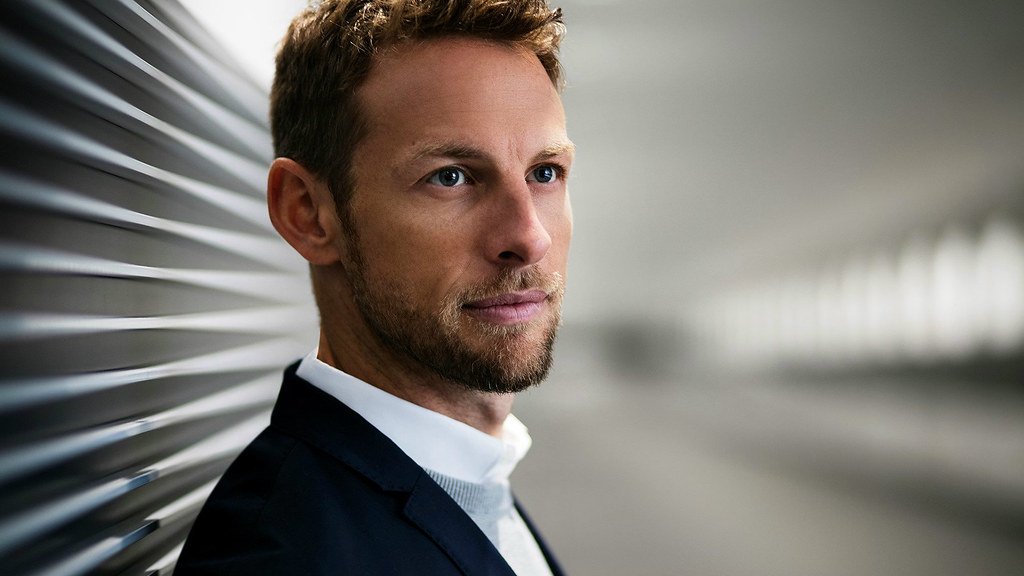Jenson Button is one of Britain’s top Formula One drivers. Formula One World Champion in 2009, he is third on the list of all time F1 starts, having competed in three hundred and five Grands Prix.
From its very earliest days, motor racing has always held a strange fascination with the spectating public. Purdy wrote in 1957, “Auto racing, bullfighting, and mountain climbing are the only real sports—all others are merely games” (often misquoted as Hemingway). The combination of real danger with the speed and sound has led to a perception of superiority above other sports and a glamorous tinge. Today, the sport of Formula One may be safer than it was when Purdy wrote that but it remains dangerous. Whilst it retains its glamour, the real changes are the sophistication of the engineering of the car and the athleticism of the drivers.
Formula One drivers are some of the most highly conditioned athletes on earth, their bodies specifically adapted to the very exacting requirements of top-flight single-seater motor racing. In a hot, cramped cockpit, loads on the body regularly exceed a sustained 4.5 G. While subjected to this loading, the driver is required to retain total concentration and lightning-fast reactions throughout the two-hour race.
Jenson Alexander Lyons Button MBE was born on 19 January 1980 in the nearby market town of Frome. His father was in the motor trade and was himself an accomplished rallycross driver. Jenson’s career began after his father bought him his first kart; he went onto win the Cadets British Karting Championship in 1991 and then the Junior TKM in 1992, winning all thirty four races. Further karting successes followed; he was British Open Karting Champion on three occasions.
His winning streak continued when he entered single-seater racing aged eighteen, winning the British Formula Ford championship. Jenson entered the world of Formula 3 and, in his debut season, finished third and was named ‘Rookie of the Year’; it was not surprising that he was offered a test drive in Formula One.
He first drove in Formula One with Williams F1 in 2000. This was followed by stints at Benetton and Renault before moving to BAR in 2003. In 2004, he finished third in the World Drivers’ Championship, with only the two Ferraris ahead of him. BAR was subsequently renamed Honda in 2006 and, during this season, after one hundred and thirteen races, Jenson won his first Grand Prix.
Following the withdrawal of Honda from the sport in December 2008, Jenson was left without a drive for the 2009 Season. Ross Brawn led a management buyout in February 2009 and Jenson suddenly found himself in a highly competitive Mercedes-engined car. He went on to win a record-equalling six of the first seven races of the 2009 season and, having led on points all season, he secured the World Drivers’ Championship; his success also helped BrawnGP to secure the World Constructors’ Championship.
For 2010, he moved to McLaren, partnering fellow British racer Lewis Hamilton. After finishing fifth for the team in 2010, Button finished the 2011 season as runner-up. He spent a seventh season with the McLaren team in 2016, his seventeenth in Formula One. From the three hundred and five races that Button has started, he has won fifteen, with a total of fifty podium finishes.
Away from the paddock, Jenson is a keen triathlete and is also involved in charitable work through the creation of The Jenson Button Trust. A gentleman on and off the track, he is liked and admired through the motor racing world; Jenson is a perfect role model for any up and coming sportsman.
Chancellor, I present to you Jenson Button, who is eminently worth to receive the Degree of Doctor of Engineering, honoris causa.
Dr Geraint Owen
Orator
